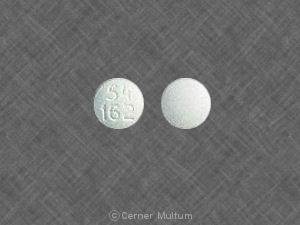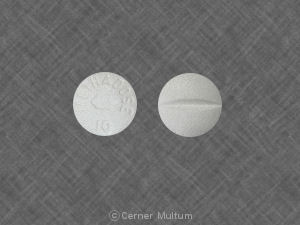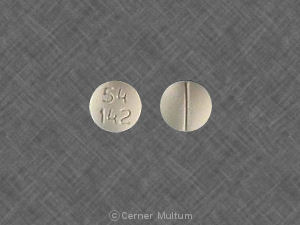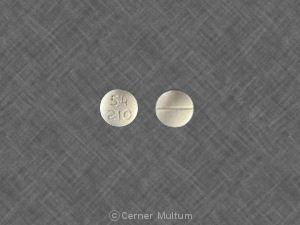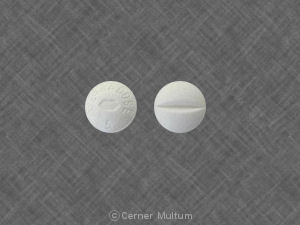What is the most important information I should know about methadone?
You should not use this medicine if you have severe asthma or breathing problems, or a blockage in your stomach or intestines.
Methadone can slow or stop your breathing, and may be habit-forming. MISUSE OF THIS MEDICINE CAN CAUSE ADDICTION, OVERDOSE, OR DEATH, especially in a child or other person using the medicine without a prescription.
Taking this medicine during pregnancy may cause life-threatening withdrawal symptoms in the newborn.
Fatal side effects can occur if you use this medicine with alcohol, or with other drugs that cause drowsiness or slow your breathing.
Methadone may cause a life-threatening heart rhythm disorder. Call your doctor at once if you have a headache with chest pain and severe dizziness, and fast or pounding heartbeats.
What is methadone?
Methadone is an opioid medication, sometimes called a narcotic. Methadone also reduces withdrawal symptoms in people addicted to heroin or other narcotic drugs without causing the "high" associated with the drug addiction.
Methadone is used as a pain reliever and as part of drug addiction detoxification and maintenance programs. Methadone is available only from a certified pharmacy.
Methadone may also be used for purposes not listed in this medication guide.
What should I discuss with my healthcare provider before using methadone?
You should not use methadone if you are allergic to it, or if you have:
- severe asthma or breathing problems; or
- a blockage in your stomach or intestines.
Methadone may cause a life-threatening heart rhythm disorder. Your heart function may need to be checked during treatment.
Tell your doctor if you have ever had:
- heart problems, long QT syndrome (in you or a family member);
- breathing problems or lung disease;
- a head injury, brain tumor, or seizures;
- drug or alcohol addiction, or mental illness;
- liver or kidney disease;
- urination problems; or
- problems with your gallbladder, pancreas, or thyroid.
Some medicines can interact with methadone and cause a serious condition called serotonin syndrome. Be sure your doctor knows if you also take stimulant medicine, herbal products, or medicine for depression, mental illness, Parkinson's disease, migraine headaches, serious infections, or prevention of nausea and vomiting. Ask your doctor before making any changes in how or when you take your medications.
If you use methadone while you are pregnant, your baby could become dependent on the drug. This can cause life-threatening withdrawal symptoms in the baby after it is born. Babies born dependent on habit-forming medicine may need medical treatment for several weeks. Tell your doctor if you are pregnant or plan to become pregnant.
Do not breast-feed while taking methadone. This medicine can pass into breast milk and cause drowsiness, breathing problems, or death in a nursing baby.
How should I use methadone?
Follow all directions on your prescription label and read all medication guides. Never use methadone in larger amounts, or for longer than prescribed. Tell your doctor if the medicine does not relieve your pain.
Methadone may be habit-forming, even at regular doses. Never share this medicine with another person, especially someone with a history of drug abuse or addiction. MISUSE OF NARCOTIC MEDICINE CAN CAUSE ADDICTION, OVERDOSE, OR DEATH, especially in a child or other person using the medicine without a prescription. Selling or giving away methadone is against the law.
Read and carefully follow any Instructions for Use provided with your medicine. Ask your doctor or pharmacist if you do not understand these instructions.
Measure liquid medicine carefully. Use the dosing syringe provided, or use a medicine dose-measuring device (not a kitchen spoon).
Dissolve the dispersible tablet in water, orange juice, or other citrus-flavored non-alcoholic beverage.
Never use methadone tablets or liquid to make a mixture for injecting the drug into your vein. This practice has resulted in death with the misuse of prescription drugs.
When methadone is used as part of a treatment program for drug addiction or detoxification, your doctor may recommend that methadone be given to you by a family member or other caregiver.
You should not stop using methadone suddenly. Follow your doctor's instructions about tapering your dose.
Store at room temperature away from moisture and heat. Keep track of your medicine. Methadone is a drug of abuse and you should be aware if anyone is using it improperly.
Do not keep leftover opioid medication. Just one dose can cause death in someone using this medicine accidentally or improperly. Ask your pharmacist where to locate a drug take-back disposal program. If there is no take-back program, flush the unused medicine down the toilet.
What happens if I miss a dose?
If you take methadone for pain: Take the missed dose as soon as you remember, then take your next dose 8 to 12 hours later.
If you take methadone for drug addiction: Take your missed dose the next day at the regular time. If you miss your doses for longer than 3 days in a row, call your doctor for instructions. You may need to restart methadone at a lower dose.
Do not take two doses at one time.
What happens if I overdose?
Seek emergency medical attention or call the Poison Help line at 1-800-222-1222. An overdose can be fatal, especially in a child or other person using this medicine without a prescription.
Overdose symptoms may include slow heart rate, severe drowsiness, muscle weakness, cold and clammy skin, pinpoint pupils, very slow breathing, or coma.
What should I avoid while using methadone?
Do not drink alcohol. Dangerous side effects or death could occur.
Avoid driving or operating machinery until you know how this medicine will affect you. Dizziness or severe drowsiness can cause falls, accidents, or severe injuries.
Grapefruit and grapefruit juice may interact with methadone and lead to unwanted side effects. Discuss the use of grapefruit products with your doctor.
What are the possible side effects of methadone?
Get emergency medical help if you have signs of an allergic reaction: hives; difficult breathing; swelling of your face, lips, tongue, or throat.
Like other opioid medicines, methadone can slow your breathing. Death may occur if breathing becomes too weak. A person caring for you should seek emergency medical attention if you have slow breathing with long pauses, blue colored lips, or if you are hard to wake up.
Call your doctor at once if you have:
- weak or shallow breathing;
- severe constipation;
- a light-headed feeling, like you might pass out;
-
symptoms of a life-threatening heart rhythm disorder --a headache with chest pain and severe dizziness, and fast or pounding heartbeats; or
-
low cortisol levels --nausea, vomiting, loss of appetite, dizziness, worsening tiredness or weakness.
Seek medical attention right away if you have symptoms of serotonin syndrome, such as: agitation, hallucinations, fever, sweating, shivering, fast heart rate, muscle stiffness, twitching, loss of coordination, nausea, vomiting, or diarrhea.
Serious side effects may be more likely in older adults and those who are malnourished or debilitated.
Long-term use of opioid medication may affect fertility (ability to have children) in men or women. It is not known whether opioid effects on fertility are permanent.
Common side effects may include:
- dizziness, drowsiness;
- nausea, vomiting; or
- increased sweating.
This is not a complete list of side effects and others may occur. Call your doctor for medical advice about side effects. You may report side effects to FDA at 1-800-FDA-1088.
What other drugs will affect methadone?
Narcotic (opioid) medication can interact with many other drugs and cause dangerous side effects or death. Be sure your doctor knows if you also use:
-
other narcotic medications --opioid pain medicine or prescription cough medicine;
-
a sedative like Valium --diazepam, alprazolam, lorazepam, Ativan, Klonopin, Restoril, Tranxene, Versed, Xanax, and others; or
-
drugs that make you sleepy or slow your breathing --a sleeping pill, muscle relaxer, tranquilizer, antidepressant, or antipsychotic medicine.
This list is not complete. Other drugs may affect methadone, including prescription and over-the-counter medicines, vitamins, and herbal products. Not all possible drug interactions are listed here.
Where can I get more information?
Your pharmacist can provide more information about methadone.
Remember, keep this and all other medicines out of the reach of children, never share your medicines with others, and use this medication only for the indication prescribed.
Every effort has been made to ensure that the information provided by Cerner Multum, Inc. ('Multum') is accurate, up-to-date, and complete, but no guarantee is made to that effect. Drug information contained herein may be time sensitive. Multum information has been compiled for use by healthcare practitioners and consumers in the United States and therefore Multum does not warrant that uses outside of the United States are appropriate, unless specifically indicated otherwise. Multum's drug information does not endorse drugs, diagnose patients or recommend therapy. Multum's drug information is an informational resource designed to assist licensed healthcare practitioners in caring for their patients and/or to serve consumers viewing this service as a supplement to, and not a substitute for, the expertise, skill, knowledge and judgment of healthcare practitioners. The absence of a warning for a given drug or drug combination in no way should be construed to indicate that the drug or drug combination is safe, effective or appropriate for any given patient. Multum does not assume any responsibility for any aspect of healthcare administered with the aid of information Multum provides. The information contained herein is not intended to cover all possible uses, directions, precautions, warnings, drug interactions, allergic reactions, or adverse effects. If you have questions about the drugs you are taking, check with your doctor, nurse or pharmacist.
Copyright 1996-2018 Cerner Multum, Inc. Version: 6.02. Revision date: 2/9/2018.
